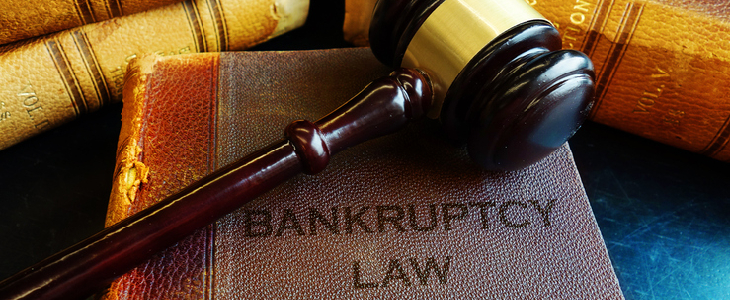Debt can take a toll on your budget, your financial future, and even your health. Trying to pay it off can feel like treading water while adding significant stress into your life. Debt may also jeopardize your financial future, making it impossible to acquire credit for personal and business goals. But the good news is, you have options. If you’re faced with debt you simply can’t pay, it’s time to consider bankruptcy. Toronjo & Prosser Law is here to get you started. Our dedicated bankruptcy attorneys will take a look at your financial situation and help you decide whether bankruptcy is best for you. If so, we will file on your behalf and represent you from start to finish.
The Basics Of Bankruptcy
Many myths and misunderstandings surround bankruptcy. Even individuals who are struggling with debt would rather try just about anything else. But in reality, bankruptcy is a rather common process that has worked for Americans from all walks of life. When used successfully, it can resolve your debt problem and get your finances – and your life – back to normal.
Bad debt can happen to anyone, for a number of reasons. You may have lost your job thanks to a bad economy, so you can’t keep up with monthly credit card payments anymore. Or perhaps you run a business and your customers or clients are behind on paying you, causing your income stream to take a hit. Bankruptcy doesn’t necessarily indicate you’ve done anything wrong. Many Americans who file do so because of situations that are beyond their control.
Bankruptcy gives debtors a chance at a fresh start. In most cases, debtors can keep all or most of their property after the process is completed. If you’ve never considered bankruptcy, or you have questions about it, it’s time to speak with a knowledgeable attorney.
Our role as attorneys is not to pressure you into filing for bankruptcy. There are advantages and disadvantages to it, so we evaluate every one of our clients’ cases individually. We educate individuals and businesses on how bankruptcy works and what it might mean for their credit and finances. We also discuss alternatives to bankruptcy that might be more optimal. It’s for this reason that so many clients have trusted the dedicated and personalized approach that Toronjo & Prosser Law offers.
What To Know About Chapter 7 Bankruptcy
Indebted individuals and businesses can file for Chapter 7 bankruptcy. Chapter 7 is also known as a liquidation bankruptcy because a trustee assigned to your case will work to sell off as many assets as possible to pay down what you owe. Chapter 7 may be a good choice if you have the following types of debt:
- Credit card bills
- Medical bills
- Utility bills (electric, water, etc.)
- Unsecured court judgments
- Collection agency debts
- Personal loans
Under Chapter 7, you don’t have to sell off all of your property. Thanks to exemptions, certain types of property with little market value – such as appliances, furniture, and clothing – are excluded from the bankruptcy process. Your home and vehicle, up to certain amounts, could also be exempt.
To qualify for Chapter 7 bankruptcy, your household income must be lower than the median income in the state of Texas. If it’s above that amount, you will need to pass a means test that takes into account your debt and disposable income.
Individuals who complete a Chapter 7 can have certain debts discharged. Businesses cannot. A business that files for Chapter 7 will be closed, and any remaining property will be sold to pay off debts.
What To Know About Chapter 13 Bankruptcy
Those who don’t qualify for Chapter 7 bankruptcy may be able to file for Chapter 13 instead. Individuals, not businesses, can use Chapter 13. Known as a reorganization bankruptcy, the goal is to reorganize and pay off debts instead of liquidating them.
One benefit of Chapter 13 is that the debtor usually gets to keep most of their property instead of having to sell it as with a Chapter 7. The debtor will propose a 3-5 year repayment plan for his or her debts. Provided the debtor diligently follows the plan, he or she can keep the property and discharge the bankruptcy at the end.
The trustee, judge, and creditors have the right to review and approve the reorganization plan first. Also, any missed payments may allow creditors to resume their collection efforts. Before filing for Chapter 13, therefore, it’s imperative that you review your debt and financial situation with a knowledgeable bankruptcy attorney.
How The Automatic Stay Can Help You
When you file for bankruptcy, regardless of which chapter, an automatic stay goes into effect. This court order prevents creditors from attempting to collect what you owe. The automatic stay temporarily halts:
- Foreclosure actions
- Collection letters and phone calls
- Wage garnishments
- Repossessions
- Creditor lawsuits
With the automatic stay in place, debtors are granted some measure of relief as they work through their debts and their bankruptcy. A creditor who violates the stay can face significant penalties. But in some cases, creditors can request that the stay be lifted.
Time To Call Toronjo & Prosser Law
Every debtor is different, and every debtor’s individual objectives will determine which bankruptcy filing is best. For instance, if your goal is to keep as much of your property as possible, Chapter 13 might be best. But Chapter 7 may be a better choice if your aim is to wrap up the bankruptcy quickly.
When you hire our firm to represent you, we take time to review your debt, explain how various factors like your income will affect bankruptcy, and examine possible alternatives. Our attorneys will also contest motions to lift the automatic stay and take legal action against any creditors who violate it.
Let Toronjo & Prosser Law get started on your bankruptcy today. Give us a call to schedule your initial consultation.

